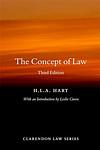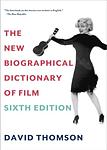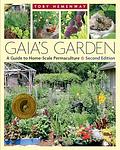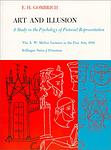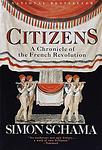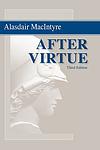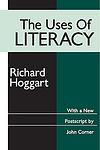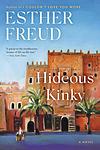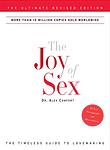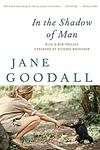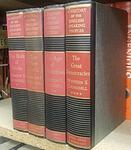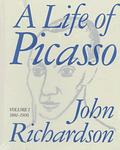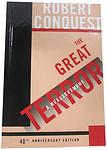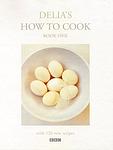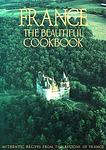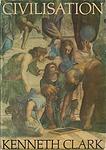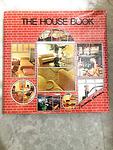The Greatest Iranian, British "Nonfiction" Books Since 1950
Click to learn how this list is calculated.
This list represents a comprehensive and trusted collection of the greatest books. Developed through a specialized algorithm, it brings together 300 'best of' book lists to form a definitive guide to the world's most acclaimed books. For those interested in how these books are chosen, additional details can be found on the rankings page.
Genres
Countries
Date Range
Reading Statistics
Click the button below to see how many of these books you've read!
Download
If you're interested in downloading this list as a CSV file for use in a spreadsheet application, you can easily do so by clicking the button below. Please note that to ensure a manageable file size and faster download, the CSV will include details for only the first 500 books.
Download-
26. The Concept Of Law by H. L. A. Hart
This seminal work in legal philosophy offers a comprehensive analysis of the nature of law, articulating a sophisticated theory that emphasizes law as a system of social rules. It challenges earlier positivist and command theories of law, introducing the idea of the "rule of recognition" as a fundamental aspect by which a society accepts certain norms as legally binding. The book also explores the relationship between law and morality, the variety of legal systems, and the notion of legal rights, ultimately providing a framework for understanding the complex structure and functioning of legal institutions in modern societies.
-
27. The Hedgehog and the Fox by Isaiah Berlin
"The Hedgehog and the Fox" is an essay that presents a philosophical and intellectual dichotomy based on a line from an ancient Greek poet, "The fox knows many things, but the hedgehog knows one big thing." The author uses this concept to categorize thinkers and writers into two groups: hedgehogs, who view the world through the lens of a single defining idea, and foxes, who draw on a wide variety of experiences and for whom the world cannot be boiled down to a single idea. The author uses this framework to analyze the works of various historical figures and philosophers.
-
28. A Biographical Dictionary Of Film by David Thomson
"A Biographical Dictionary of Film" is a comprehensive reference book that offers detailed profiles and critical assessments of actors, directors, and other significant figures in the film industry. The work combines factual information with the author's personal and often provocative views, providing both biographical sketches and broader commentary on the cinematic contributions of each subject. The entries not only highlight career milestones and notable films but also delve into the artistic and personal nuances that define the individuals, making it a valuable resource for both film scholars and enthusiasts seeking in-depth insight into the world of cinema.
-
29. Gaia by James Lovelock
The book presents a groundbreaking hypothesis that redefines Earth as a self-regulating system, where the biosphere, atmosphere, oceans, and soil function as a single living organism. This entity, named after the Greek goddess of Earth, maintains the conditions necessary for life through complex interactions among its components. The author, an independent scientist, argues that life on Earth actively shapes the environment for its own survival, challenging traditional views of the relationship between organisms and their habitat. The work has sparked widespread debate and research, influencing fields from biology to environmental science, and has profound implications for our understanding of life on Earth and how we approach environmental stewardship.
-
30. Art and Illusion by Ernest H. Gombrich
"Art and Illusion" is a comprehensive study of the psychology of pictorial representation. The book explores how artists from the Renaissance to the present day have used illusions to enhance their work, and how our brains interpret these illusions. It delves into the science behind our perception of reality and how it influences art, providing a unique perspective on the intersection between psychology, philosophy, and aesthetics. The book also discusses the concept of 'schema' and 'correction' in an artist's work, and how the artist's perception of the world is constantly evolving.
-
31. Citizens by Simon Schama
"Citizens" is a detailed and comprehensive exploration of the French Revolution, offering a fresh perspective on the historical event. The book examines the revolution from its earliest beginnings to its aftermath, delving into the causes, key figures, and the immediate and long-term consequences. It provides a vivid and engaging account, highlighting that the revolution was not just a period of bloodshed and turmoil, but also a time of radical political and social change that shaped the course of modern history.
-
32. After Virtue by Alasdair MacIntyre
This book is a critique of contemporary moral philosophy, arguing that modern ethical theories have failed to provide a coherent basis for moral judgments. The author believes that the Enlightenment project of justifying morality through reason has ultimately failed, leading to a culture of emotivism where moral arguments are reduced to expressions of personal preference. The author suggests a return to Aristotelian virtue ethics, emphasizing the importance of moral character and the role of community in ethical life.
-
33. The Uses of Literacy by Richard Hoggart
"The Uses of Literacy" is a sociological study that explores the impact of mass media and popular culture on traditional working-class values and communities in Britain during the mid-20th century. The author combines personal memoir with scholarly analysis to examine how the spread of American consumer culture and the rise of mass media have influenced British society, especially among the working class. The book serves as a critique of the commercialization of culture and the erosion of authentic, local cultures and traditions.
-
34. Hideous Kinky by Esther Freud
A young woman travels to Morocco with her two daughters in search of a more fulfilling and adventurous life. The novel explores the experiences of the two young girls as they navigate this new and unfamiliar culture, their mother's search for spiritual enlightenment, and their struggles with poverty. The narrative is a poignant exploration of childhood innocence, the complexities of motherhood, and the clash of cultures.
-
35. Postwar by Tony Judt
"Postwar" is a comprehensive analysis of the history of Europe from the end of World War II to the early 21st century. The book examines the major political, cultural, social, and economic changes that have shaped the continent, including the Cold War, the rise and fall of the Soviet Union, the rebuilding of Western Europe, and the challenges of integrating Eastern Europe into the European Union. It also delves into the impact of these events on the daily lives of Europeans, exploring themes of memory, identity, and the struggle to come to terms with the past.
-
36. The Joy of Sex by Alex Comfort
This book serves as a comprehensive guide to human sexual behavior, offering detailed illustrations and instructions on various sexual techniques and positions. The author emphasizes the importance of mutual consent, respect, and emotional intimacy in sexual relationships, and promotes a positive and open-minded attitude towards sex. The book also provides advice on sexual health and contraception, making it a valuable resource for anyone seeking to enhance their sexual knowledge and experiences.
-
37. In the Shadow of Man by Jane Goodall
This book provides a fascinating and detailed account of the author's groundbreaking research on wild chimpanzees in Africa. The author offers insights into the complex social structure, behavior, and personalities of these primates, challenging the then-prevailing scientific belief that only humans were capable of having personalities and emotions. Through her studies, the author revolutionized our understanding of our closest relatives in the animal kingdom, and she also discusses the threats to their survival and the many challenges they face due to human activities.
-
38. A History of the English-Speaking Peoples by Winston Churchill
This book is a four-volume work that provides a comprehensive history of the English-speaking peoples from their earliest origins to the mid-twentieth century. It covers the history of Britain, the United States, Canada, Australia, and other English-speaking countries, exploring their shared cultural heritage, political institutions, legal systems, and social structures. The author, a prominent political figure and Nobel laureate, offers a unique perspective on historical events, including the Roman invasion, the Magna Carta, the American Revolution, and the World Wars.
-
39. A Life of Picasso by John Richardson
This biography delves into the life of one of the most influential artists of the 20th century, Picasso. The book provides an in-depth look into his early life, his relationships, his artistic evolution, and his influence on the art world. It offers a comprehensive exploration of Picasso's personal and professional life, shedding light on his genius and the complexities of his character. The author's detailed research and intimate knowledge of the artist's life make this book a definitive biography of Picasso.
-
40. The Great Terror by Robert Conquest
"The Great Terror" is a comprehensive analysis of Joseph Stalin's purges in the Soviet Union during the 1930s. The book delves into the brutal and systematic elimination of potential political rivals, intellectuals, and ordinary citizens, who were falsely accused of espionage, sabotage, or being counter-revolutionary. It provides a detailed account of the show trials, executions, and forced labor camps, shedding light on one of the darkest periods in Soviet history.
-
41. The Family, Sex and Marriage in England 1500-1800 by Lawrence Stone
This scholarly work provides an in-depth analysis of the transformation of family life, sexual mores, and marital structures in England from the 16th to the 18th century. It examines the shift from the medieval extended family to the closed domesticated nuclear family, exploring how economic, social, legal, and cultural changes influenced personal relationships and societal norms. The book delves into the roles of love, sex, and marriage during this period, revealing how the evolution of these concepts was intertwined with broader historical developments such as the Protestant Reformation, the rise of individualism, and the changing economic landscape. Through meticulous research, the text presents a comprehensive view of how private life was redefined over three centuries, reflecting the complex interplay between tradition and change in early modern England.
-
42. Chronicles of Wasted Time by Malcolm Muggeridge
"Chronicles of Wasted Time" is an autobiography that explores the life and thoughts of a British journalist and satirist during the 20th century. The book provides a critical perspective on the political and social changes of the time, including the author's experiences in India, Russia, and during World War II. The author also delves into his personal journey from agnosticism to Christianity, offering a profound reflection on faith and spirituality.
-
43. How to Cook by Delia Smith
This book is a comprehensive guide to cooking, designed for both beginners and experienced cooks. It covers all the basics, from how to boil an egg to preparing complex dishes, with step-by-step instructions and helpful tips. The book also includes a wide range of recipes from around the world, detailed explanations of cooking techniques, and advice on choosing and using kitchen equipment. It's a must-have resource for anyone who wants to improve their culinary skills.
-
44. The Naked Ape by Desmond Morris
This book offers a groundbreaking, zoological perspective on human behavior, examining humans as a species of animal. The author, a renowned zoologist, delves into various aspects of human life including sexuality, child-rearing, and social structures, comparing them with the behaviors of other animals. Through this comparative analysis, the book challenges conventional views on human exceptionalism, arguing that many human behaviors can be understood through our biological and evolutionary origins. The work has sparked considerable debate and discussion, influencing both scientific and popular views on human nature since its publication.
-
45. Arabian Sands by Wilfred Thesiger
This book is a detailed account of the author's travels across the Arabian Peninsula during the 1940s. The narrative provides an in-depth look into the Bedouin way of life, their customs, and the harsh desert environment they inhabit. The author's journey takes him through the Empty Quarter, one of the most inhospitable places on earth, challenging his endurance and resilience. The book is a testament to the author's love for adventure and his admiration for the Bedouin people, offering readers a glimpse into a world that has largely disappeared.
-
46. A Short Walk in the Hindu Kush by Eric Newby
"A Short Walk in the Hindu Kush" is a travel narrative that documents the author's adventurous journey through the remote and unexplored areas of the Hindu Kush, Afghanistan. The author, along with his friend, embarks on an expedition to climb Mir Samir, a mountain never before climbed by Europeans. Despite their lack of experience and preparation, they persevere through the harsh terrain and cultural differences, providing an engaging and humorous account of their experiences, encounters, and the beautiful landscapes they traverse.
-
47. Civilisation by Kenneth Clark
"Civilisation" is an in-depth exploration of Western art and culture from the Dark Ages to the twentieth century. The book provides a comprehensive examination of the major creative and intellectual movements in Western history, including the Reformation, the Renaissance, the Industrial Revolution, and the Romantic era. The author uses art, literature, music, and architecture as a lens to explore the broader social, political, and economic context of each period, offering a rich and nuanced portrait of Western civilisation.
-
48. Coleridge: Early Visions by Richard Holmes
"Coleridge: Early Visions" is a comprehensive biography that offers an in-depth look into the life of one of the most influential English Romantic poets. The book chronicles the poet's early life, his education, his relationships and his struggles with opium addiction. It also delves into his philosophical ideas, his collaborations with other notable figures of his time, and his literary contributions, particularly his poetry and critical essays. The biography provides a detailed and nuanced portrayal of the poet's complex personality, his creative process, and the social and cultural context in which he lived and worked.
-
49. The House Book by Terence Conran
"The House Book" is a comprehensive guide to home design and decoration, offering a wealth of ideas for creating a comfortable, functional, and aesthetically pleasing living environment. It covers a range of topics including space planning, color schemes, furniture selection, and accessorizing, providing practical advice alongside inspiring photographs. The book aims to cater to a variety of tastes and budgets, encouraging readers to express their personal style while considering the principles of good design. It serves as a valuable resource for both homeowners looking to renovate their space and design enthusiasts seeking to deepen their understanding of interior design concepts.
-
50. Into The Heart Of Borneo by Redmond O'Hanlon
The book is an enthralling travelogue that recounts the daring journey of two adventurers as they embark on an expedition into the dense rainforests of Borneo. With a blend of humor and erudition, the narrative captures their encounters with the island's unique wildlife, challenging terrain, and the indigenous Dayak people, whose customs and way of life are as intriguing as the natural wonders surrounding them. The travelers face numerous hardships and moments of awe, providing a vivid account of their quest to reach the center of one of the world's last great wildernesses.
Reading Statistics
Click the button below to see how many of these books you've read!
Download
If you're interested in downloading this list as a CSV file for use in a spreadsheet application, you can easily do so by clicking the button below. Please note that to ensure a manageable file size and faster download, the CSV will include details for only the first 500 books.
Download